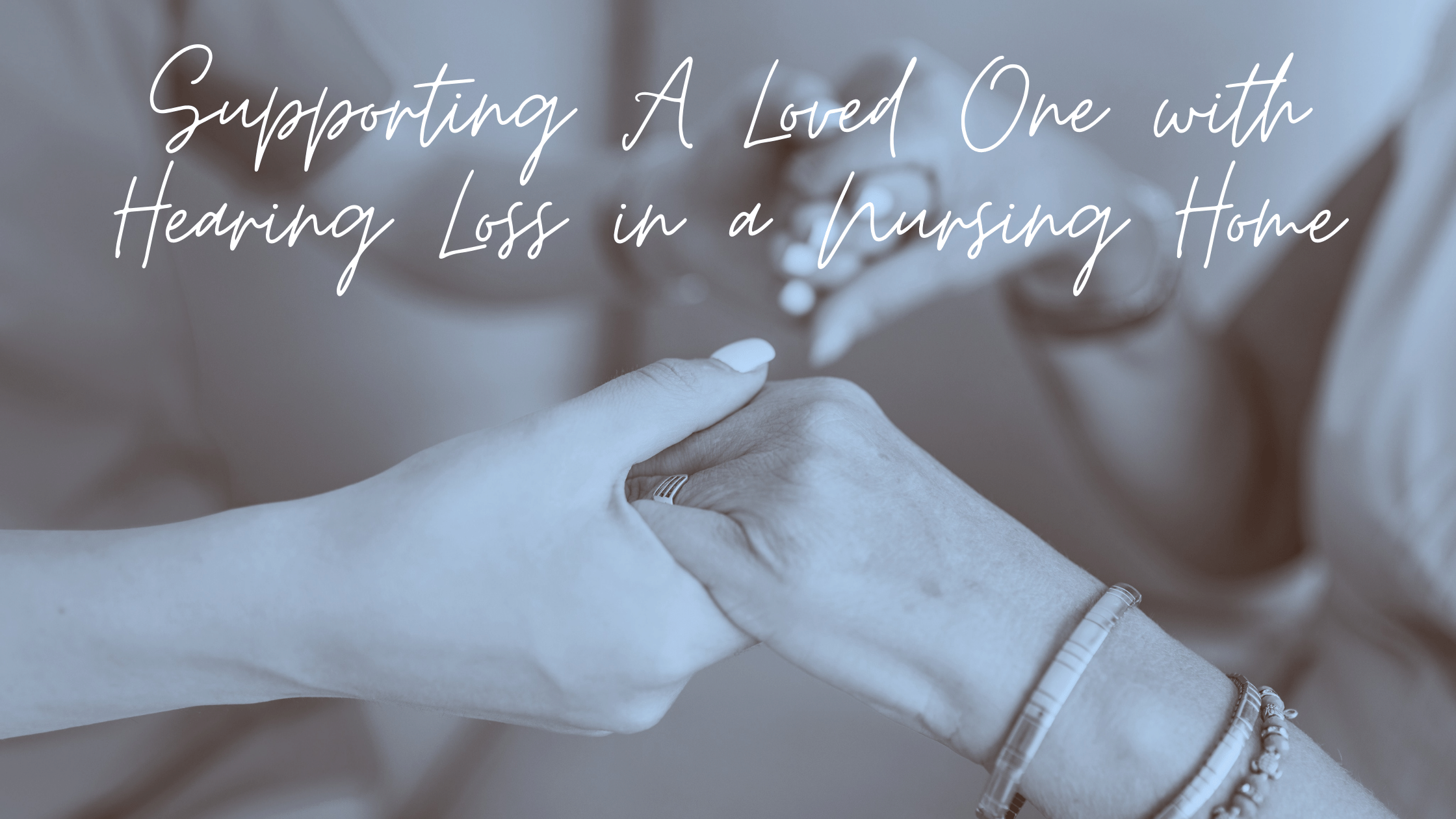
- How Spending Time Outdoors Enhances Hearing Health - July 16, 2024
- Exploring the Impact of Sports on Hearing Health - July 3, 2024
- The Impact of Diet on Hearing Loss - June 28, 2024
If you have a loved one in a nursing home or assisted living home it can often feel stressful to be far away and not know exactly how to help. This is particularly true of seniors who have hearing loss who may have trouble communicating with staff and contemporaries about their needs.
Half of all people over 75 deal with hearing loss making the likelihood that the senior in your life in assisted living is dealing with some degree of hearing impairment. This number continues to rise and by 100 there is a 100% chance that hearing loss is present.
One of the most important things you can do is make sure that your loved one is actively able to succeed is to give them the support to treat their hearing loss. Here are just some of the ways you can help the people you love connect, communicate and flourish in a care setting.
Communicate With The Staff
The staff at the nursing home see your loved one first thing in the morning and throughout the day, making sure that your loved one is given the care and support they need. However for seniors with hearing loss it can be hard to communicate if a hearing loss is present.
The best treatment for hearing loss is using hearing aids, which amplify the sounds an individual struggles with so they can communicate clearly. Even for seniors who have taken the leap and committed to using hearing aids they can be confusing to use. The batteries must be recharged or replaced everyday and the tiny control and state of the art technology can be hard for many seniors to navigate especially for patients with limited dexterity.
Forming a direct and ongoing correspondence with the staff at the nursing home or care facility will be key in making sure that they can help your loved one maintain and wear their hearing aids. This can ensure that the hearing aids are clean and ready for each day with new batteries or charge so they can do what they are intended to do.
They can help you keep track of these tiny devices so the person in their care can hear clearly everyday. Nursing home workers have many patients who all have needs often at once. Unfortunately it is all too common for these important caretakers to feel underappreciated and it’s important to express your gratitude.
Helping to Keep Track Of Hearing Aids
Often nursing home facilities are large with many patients and a rotating staff. While you might form a relationship with a few of the caretakers, schedules or circumstances can change at any time making it all too easy for important information about hearing health to be lost.
Make sure to type instructions around hearing aid maintenance and needs so any staff member can know how to help your senior care for their hearing aids. It is also very easy for hearing aids to get caught in clothing or lost in the lunchroom. Make sure to label the hearing aids with your loved ones name.
Also, investing in a hearing aid case can protect your hearing aids, making them easier to find and protect. Many of these cases are also designed to remove moisture and humidity that may build up each day. This can ensure that your loved one’s hearing aids are working their best to provide valuable communication and connection for as long as they possibly can.
Take Charge of Maintenance
The best way to get the most life from hearing aids is to clean them regularly. However this may be complicated for many seniors to do as the parts are tiny and hard to pick up for many older hands. It may be too much labor to ask the staff to do all the maintenance of keeping hearing aids clean and monitoring them daily for cracks and other issues. When you take it upon yourself to clean your loved one’s hearing aids at least weekly, you can ensure you can get the most life out of these important devices.
Being Proactive
If the loved one in your life is living in a nursing home and may have hearing loss the number one thing you can do to help them is make an appointment to have their hearing tested today. Schedule now to make sure they have the help they need to hear their best.
